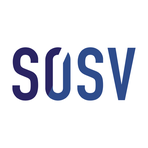Unspun's $32 Million Leap: A Revolution in 3D Weaving Technology
August 12, 2024, 3:30 am

Location: United States, California, Emeryville
Employees: 11-50
Founded date: 2015
Total raised: $53.5M
In the world of fashion, change is often slow. But Unspun, an Oakland-based company, is flipping the script. With a recent $32 million boost from an oversubscribed Series B funding round, Unspun is set to expand its groundbreaking 3D weaving technology, Vega, across Europe. This investment, led by DCVC and joined by notable players like Lowercarbon Capital and Decathlon, is more than just a financial windfall. It’s a ticket to a new era in sustainable fashion.
Vega is not just another machine; it’s a game-changer. Imagine a device that can weave thousands of yarns into garments in mere minutes. This is the essence of Vega. It allows for on-demand production, slashing waste and overconsumption in an industry notorious for both. The jacquard machines, at the heart of this technology, promise almost zero waste. They can create woven garments from a variety of yarns, seamlessly integrating into existing supply chains. This means localized, automated production is no longer a dream but a reality.
Currently, Vega machines focus on high-quality bottoms, bags, and hats. But the horizon is broad. Future iterations will stretch into performance wear, outerwear, shoes, tops, and dresses. The vision is clear: a versatile, efficient manufacturing process that meets the demands of modern consumers while respecting the planet.
The fashion industry has long grappled with the specter of overproduction. It’s a taboo, a dirty secret. But now, with the backing of top-tier climate funds, this issue is recognized as urgent. Unspun’s CEO, Walden Lam, emphasizes the need for change. The company is not just looking to profit; it aims to align economic success with climate impact. This dual focus is crucial in a world where consumers are increasingly demanding transparency and sustainability.
The implications of this funding extend beyond just Unspun. Major retailers, including Walmart, are already signing multi-year agreements to deploy Vega machines. This partnership signifies a shift in the retail landscape. Brands are under pressure to adapt to new regulations and consumer expectations. Localized production offers a competitive edge, especially in Europe, where new rules on production limits and waste bans are on the table.
Vega’s ability to drastically shorten supply chains is a boon for brands. In an industry where speed is king, the technology allows for rapid design-to-shelf processes. This agility is essential for brands to keep pace with fast-fashion disruptors while maintaining quality and profitability. The traditional cut-make-trim model is being challenged. Unspun’s technology offers a cleaner, more efficient alternative.
But the innovation doesn’t stop there. Unspun is also pioneering circular manufacturing techniques. Imagine garments that can be unspun back into yarns, ready to be woven into new products. This concept of circularity is vital in a world grappling with waste. It’s a way to ensure that fashion doesn’t just end up in landfills but continues to evolve.
The current generation of Vega machines is impressive, but the future is even brighter. As the technology matures, it will expand into new categories, offering endless possibilities. The potential to create high-performing garments from almost any yarn opens doors to creativity and sustainability.
Unspun’s recent collaborations highlight its role as a pioneer in the fashion industry. The company made waves at New York Fashion Week with the first-ever 3D woven collection in partnership with the fashion label Eckhaus Latta. This collection is now available online and in stores, showcasing the practical applications of Vega technology. Additionally, Unspun played a crucial role in launching designer Ana Kraš’ lifestyle brand, Teget, further solidifying its position as a leader in innovative fashion solutions.
The funding round is a clear signal that the industry is ready for change. Investors are keen to support technologies that promise not just profit but also a positive impact on the environment. Unspun’s vision aligns with this shift. The company is not just about making clothes; it’s about rethinking how clothes are made.
As Unspun gears up to scale its operations, the focus will be on licensing its technology to established manufacturing partners in Europe. This strategy will amplify the reach of Vega, allowing more brands to embrace sustainable practices. The future of fashion is not just about style; it’s about responsibility.
In conclusion, Unspun’s $32 million funding is more than a financial milestone. It’s a beacon of hope for an industry in need of transformation. With its innovative 3D weaving technology, Unspun is poised to lead the charge toward a more sustainable, efficient, and responsible fashion landscape. The journey has just begun, but the destination is clear: a future where fashion respects both people and the planet.
Vega is not just another machine; it’s a game-changer. Imagine a device that can weave thousands of yarns into garments in mere minutes. This is the essence of Vega. It allows for on-demand production, slashing waste and overconsumption in an industry notorious for both. The jacquard machines, at the heart of this technology, promise almost zero waste. They can create woven garments from a variety of yarns, seamlessly integrating into existing supply chains. This means localized, automated production is no longer a dream but a reality.
Currently, Vega machines focus on high-quality bottoms, bags, and hats. But the horizon is broad. Future iterations will stretch into performance wear, outerwear, shoes, tops, and dresses. The vision is clear: a versatile, efficient manufacturing process that meets the demands of modern consumers while respecting the planet.
The fashion industry has long grappled with the specter of overproduction. It’s a taboo, a dirty secret. But now, with the backing of top-tier climate funds, this issue is recognized as urgent. Unspun’s CEO, Walden Lam, emphasizes the need for change. The company is not just looking to profit; it aims to align economic success with climate impact. This dual focus is crucial in a world where consumers are increasingly demanding transparency and sustainability.
The implications of this funding extend beyond just Unspun. Major retailers, including Walmart, are already signing multi-year agreements to deploy Vega machines. This partnership signifies a shift in the retail landscape. Brands are under pressure to adapt to new regulations and consumer expectations. Localized production offers a competitive edge, especially in Europe, where new rules on production limits and waste bans are on the table.
Vega’s ability to drastically shorten supply chains is a boon for brands. In an industry where speed is king, the technology allows for rapid design-to-shelf processes. This agility is essential for brands to keep pace with fast-fashion disruptors while maintaining quality and profitability. The traditional cut-make-trim model is being challenged. Unspun’s technology offers a cleaner, more efficient alternative.
But the innovation doesn’t stop there. Unspun is also pioneering circular manufacturing techniques. Imagine garments that can be unspun back into yarns, ready to be woven into new products. This concept of circularity is vital in a world grappling with waste. It’s a way to ensure that fashion doesn’t just end up in landfills but continues to evolve.
The current generation of Vega machines is impressive, but the future is even brighter. As the technology matures, it will expand into new categories, offering endless possibilities. The potential to create high-performing garments from almost any yarn opens doors to creativity and sustainability.
Unspun’s recent collaborations highlight its role as a pioneer in the fashion industry. The company made waves at New York Fashion Week with the first-ever 3D woven collection in partnership with the fashion label Eckhaus Latta. This collection is now available online and in stores, showcasing the practical applications of Vega technology. Additionally, Unspun played a crucial role in launching designer Ana Kraš’ lifestyle brand, Teget, further solidifying its position as a leader in innovative fashion solutions.
The funding round is a clear signal that the industry is ready for change. Investors are keen to support technologies that promise not just profit but also a positive impact on the environment. Unspun’s vision aligns with this shift. The company is not just about making clothes; it’s about rethinking how clothes are made.
As Unspun gears up to scale its operations, the focus will be on licensing its technology to established manufacturing partners in Europe. This strategy will amplify the reach of Vega, allowing more brands to embrace sustainable practices. The future of fashion is not just about style; it’s about responsibility.
In conclusion, Unspun’s $32 million funding is more than a financial milestone. It’s a beacon of hope for an industry in need of transformation. With its innovative 3D weaving technology, Unspun is poised to lead the charge toward a more sustainable, efficient, and responsible fashion landscape. The journey has just begun, but the destination is clear: a future where fashion respects both people and the planet.
